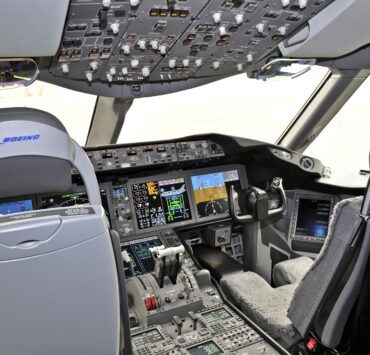
A passenger on an El Al Israel Airlines flight from Tel Aviv to London nearly died after they forgot to pack their Epipen and then suffered a serious allergic reaction during the flight.
Thankfully for the passenger, there was an off-duty doctor and nurse onboard the flight who managed to administer adrenaline to counteract the allergic reaction and his stabilise his condition.
Registered Nurse Ruti Orlevitz told Israeli news site Ynet how she noticed the passenger appeared to be showing signs of an allergic reaction shortly after takeoff after eating a fish dish.
“I saw that he was all red, having difficulty breathing, with swelling in his neck and face. Within a short time, I diagnosed him with an allergic attack,” Orlevitz explained.
People who suffer from potentially threatening allergies usually carry an epinephrine auto-injector like an EpiPen to quickly treat anaphylactic shock before it is too late, but it quickly transpired that the man had forgotten to pack his auto-injector.
Thankfully, when the flight attendants put a call out to see if their was a doctor onboard, gynecologist Dr. Jacob Segal came forward to assist.
In the short time it took Dr. Segal to reach the patient, he was already having trouble breathing.
“We assessed the available equipment on the plane and immediately began life-saving treatment with it,” Dr Segal explained. “Initially, we weren’t sure if an emergency landing was necessary, but we started with the equipment we had”.
Hooked up to adrenaline and with oxygen being administered, Dr Segal and Orlevitz treated the patient as the flight continued onto London. Dr Segal revealed that only after four hours, towards the end of the flight, did the patient’s condition stabilise.
The flight was met by an ambulance on arrival in London, and the patient was taken to hospital where he made a recovery. A few days later he even paid Orlevitz a visit to thank her for helping to save his life.
Some airlines stock epinephrine auto-injectors in their onboard emergency medical kits for exactly this type of situation. One of the main benefits of an auto-injector to treat anaphylactic shock is that it can be administered with little or no training.
When airlines don’t have an auto-injector onboard, they must rely on the help of a trained medical professional to administer adrenaline from a vial.
Last month, Southwest Airlines announced that it would soon start stocking auto-injectors in its onboard medical kits after concerns were raised by passengers, medical personnel and a host of U.S. Senators who have called on airlines.
Last December, three Senators wrote to FAA administrator Michael Whitaker urging the agency to force U.S. airlines to carry epinephrine auto-injectors because they claimed only ‘good fortune’ had so prevented passengers from dying from a mid-flight anaphylactic shock.
In April 2023, Lindsey Ulin, a resident physician in the Department of Internal Medicine at Brigham and Women’s Hospital in Boston, implored Southwest to start carrying epinephrine autoinjectors after she suffered a life-threatening allergic reaction on one of its flights.
Ulin didn’t have her own auto-injector because she did not have a known allergy.
Mateusz Maszczynski honed his skills as an international flight attendant at the most prominent airline in the Middle East and has been flying throughout the COVID-19 pandemic for a well-known European airline. Matt is passionate about the aviation industry and has become an expert in passenger experience and human-centric stories. Always keeping an ear close to the ground, Matt's industry insights, analysis and news coverage is frequently relied upon by some of the biggest names in journalism.










It seems like a no-brained to stock these on airplanes. As the article concluded.. you don’t have an allergy, until you do.